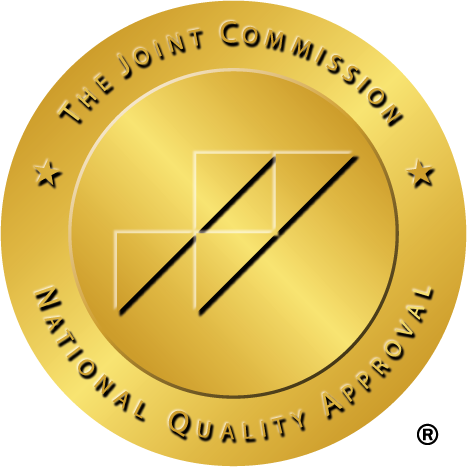Table of Contents
Key Points
- Memory formation stops during blackouts, leaving a person conscious but unable to create new memories.
- Rapid alcohol consumption, especially on an empty stomach causes blackouts by disrupting hippocampus function.
- Warning signs include memory gaps, repetitive conversations, confusion, and impaired judgment.
- Consequences range from immediate health risks like alcohol poisoning to long-term problems such as cognitive damage and relationship issues.
- Prevention strategies include pacing drinks, staying hydrated, eating before drinking, and knowing personal limits.
Experiencing a blackout from alcohol consumption means your brain temporarily loses the ability to form new memories, even though you remain conscious. This dangerous condition occurs when blood alcohol levels rise rapidly, typically from consuming large amounts of alcohol in a short period. While many people mistakenly view blackouts as merely embarrassing experiences, they indicate severe intoxication that carries serious health and safety risks.
What Does it Mean to Be Blackout Drunk?
Being blackout drunk occurs when excessive alcohol consumption prevents your brain from forming new memories while you remain conscious and active.[1] This happens when alcohol interferes with the hippocampus, the brain region responsible for transferring short-term memories into long-term storage. During a blackout, you might appear functional to others – talking, walking, and making decisions – but later have no recollection of these activities.
Blackouts differ from simply falling asleep from drinking.[2] With a blackout, you continue to function but experience either fragmentary blackouts (where some memories remain) or complete blackouts (where entire chunks of time vanish from memory). This condition typically occurs when blood alcohol concentration rises quickly, often from consuming large amounts of alcohol in a short timeframe or drinking on an empty stomach.
What Causes Blacking Out While Drinking?
Blacking out while drinking happens when alcohol severely disrupts memory formation in the brain.[3] This occurs when alcohol interferes with the hippocampus, preventing it from converting short-term memories into long-term ones. Your brain literally stops recording new experiences, even though you remain conscious and active.
Several factors increase the likelihood of experiencing a blackout.[4] Consuming large amounts of alcohol quickly raises blood alcohol concentration rapidly, overwhelming your brain’s ability to process information. Drinking on an empty stomach accelerates alcohol absorption into the bloodstream. Genetic factors also play a role, as some people have biological predispositions making them more susceptible to blackouts. Mixing alcohol with certain medications or drugs further increases blackout risk by enhancing alcohol’s effects on brain function.
What Are the Signs of Blacking Out?
Recognizing a blackout can be challenging because someone experiencing one may appear conscious and functional to others. However, certain behaviors and symptoms can indicate a person is in a blackout state rather than simply being intoxicated:[5]
- Memory gaps occur when the person cannot recall recent events or conversations despite being conscious during them
- Repetitive conversations happen as the person repeatedly asks the same questions or tells the same stories, unaware they’ve already done so
- Confusion about surroundings, time, or how they arrived at their current location becomes apparent
- Impaired judgment leads to risky behaviors they wouldn’t normally engage in while sober
- Emotional volatility may manifest as sudden mood swings, inappropriate emotional responses, or personality changes
- Coordination problems beyond typical intoxication, including difficulty with basic motor skills
- Inability to follow conversations occurs as the brain struggles to process and retain new information
- Disorientation about basic details like current date, location, or the identity of friends
The Potential Consequences of a Blackout
When blood alcohol concentration rises rapidly, often from binge drinking on an empty stomach, the hippocampus cannot form new memories or transfer short-term information into long-term storage. These episodes of memory impairment can lead to severe immediate and lasting consequences:[6]
- Health risks include alcohol poisoning, which can be fatal without prompt medical attention
- Cognitive damage may occur as repeated blackouts potentially harm brain cells involved in memory formation and decision-making
- Increased likelihood of developing alcohol use disorder emerges as frequent blackouts often signal problematic drinking patterns
- Vulnerability to assault rises dramatically during periods when judgment is impaired but consciousness remains
- Engagement in risky behaviors like unprotected sex, driving while intoxicated, or physical altercations becomes more common
- Relationship damage develops when behavior during blackouts harms connections with loved ones
- Mental health impacts can include anxiety, depression, and shame about actions taken during memory loss periods
- Legal troubles may arise from activities during blackouts that violate laws or regulations
Preventing Blackouts
Preventing alcohol-induced blackouts involves understanding and modifying drinking behaviors to avoid dangerous levels of intoxication:
- Pace your drinking by consuming no more than one standard drink per hour, giving your body time to metabolize alcohol
- Stay hydrated by alternating alcoholic beverages with full glasses of water to slow consumption and reduce overall intake
- Eat before and during drinking as food helps slow alcohol absorption and prevents rapid spikes in blood alcohol levels
- Know your limits and be aware of your personal tolerance, which varies based on factors like weight, sex, and genetics
- Count your drinks accurately to maintain awareness of your consumption throughout a drinking session
- Avoid drinking games and challenges that encourage rapid consumption of large amounts of alcohol
- Choose lower-alcohol beverages which allow you to socialize longer without reaching dangerous intoxication levels
- Plan ahead by setting a firm drink limit before social situations and arranging safe transportation
- Consider medication interactions as some prescriptions can enhance alcohol’s effects on memory impairment
- Recognize warning signs like feeling unusually intoxicated after small amounts of alcohol, which may indicate increased risk
- Seek support if you find it difficult to control your drinking or frequently experience memory gaps after alcohol consumption
Alcohol Use Disorder
Alcohol use disorder (AUD) is a medical condition that involves impaired ability to stop or control alcohol use despite serious consequences.[7] This disorder exists on a spectrum from mild to severe, with symptoms including strong cravings, increased tolerance, drinking larger amounts over time, and experiencing withdrawal symptoms when not drinking. Many people suffering from AUD continue drinking even when it causes significant problems in their lives, relationships, and health.
The good news is that AUD is highly treatable, regardless of its severity. Effective treatment approaches include evidence-based behavioral therapies, support groups, and comprehensive rehabilitation programs. Success rates improve significantly when treatment is personalized to address the person’s specific needs and circumstances.[8] With proper support, many people achieve long-term recovery and rebuild healthy, fulfilling lives free from alcohol dependence.
Taking the first step to seek help for alcohol-related problems takes courage. Many people who experience blackouts or struggle with their drinking hesitate to reach out due to shame, fear of judgment, or denial about the severity of their situation. If you’re concerned about occasional blackouts or patterns of problematic drinking, resources are out there to help you understand your relationship with alcohol and make positive changes.
Frequently Asked Questions About Blackout Drinking
Sources
[1] National Institute on Alcohol Abuse and Alcoholism. (2023, February). Interrupted Memories: Alcohol-Induced Blackouts | National Institute on Alcohol Abuse and Alcoholism (NIAAA). Www.niaaa.nih.gov. https://www.niaaa.nih.gov/publications/brochures-and-fact-sheets/interrupted-memories-alcohol-induced-blackouts on February 28, 2025
[2] Blackouts and Your Brain. (n.d.). Cleveland Clinic. https://health.clevelandclinic.org/brownout-vs-blackout on February 28, 2025
[3] White, A. M. (2024). What Happened? Alcohol, Memory Blackouts, and the Brain. Alcohol Research & Health, 27(2), 186. https://pmc.ncbi.nlm.nih.gov/articles/PMC6668891/ on February 28, 2025
[4] LaBrie, J. W., Hummer, J., Kenney, S., Lac, A., & Pedersen, E. (2011). Identifying Factors That Increase the Likelihood for Alcohol-Induced Blackouts in the Prepartying Context. Substance Use & Misuse, 46(8), 992–1002. https://pmc.ncbi.nlm.nih.gov/articles/PMC4329777/ on February 28, 2025
[5] What causes blackouts? Symptoms, treatment, prevention, and more. (2020, September 28). Www.medicalnewstoday.com. https://www.medicalnewstoday.com/articles/what-causes-blackouts on February 28, 2025
[6] National Institute on Alcohol Abuse and Alcoholism. (2023, February). Interrupted Memories: Alcohol-Induced Blackouts | National Institute on Alcohol Abuse and Alcoholism (NIAAA). Www.niaaa.nih.gov. https://www.niaaa.nih.gov/publications/brochures-and-fact-sheets/interrupted-memories-alcohol-induced-blackouts on February 28, 2025
[7] Mayo Clinic. (2022, May 18). Alcohol use disorder. Mayo Clinic. https://www.mayoclinic.org/diseases-conditions/alcohol-use-disorder/symptoms-causes/syc-20369243 on February 28, 2025
[8] Enhancing Motivation for Change in Substance Use Disorder Treatment. (n.d.). https://library.samhsa.gov/sites/default/files/tip-35-pep19-02-01-003.pdf on February 28, 2025
[9] National Institute on Alcohol Abuse and Alcoholism. (2023, February). Interrupted Memories: Alcohol-Induced Blackouts | National Institute on Alcohol Abuse and Alcoholism (NIAAA). Www.niaaa.nih.gov. https://www.niaaa.nih.gov/publications/brochures-and-fact-sheets/interrupted-memories-alcohol-induced-blackouts on February 28, 2025
[10] APA PsycNet. (2025). Apa.org. https://psycnet.apa.org/record/2003-99619-012 on February 28, 2025
New Waters Recovery Editorial GUIDELINES
At New Waters Recovery, we take your health and wellness seriously. We have a thorough process in place to ensure the integrity of information that is displayed on our website. All content published to our site undergoes a rigorous medical review by a doctorate level clinician to ensure medical accuracy. Read More About Our Process






